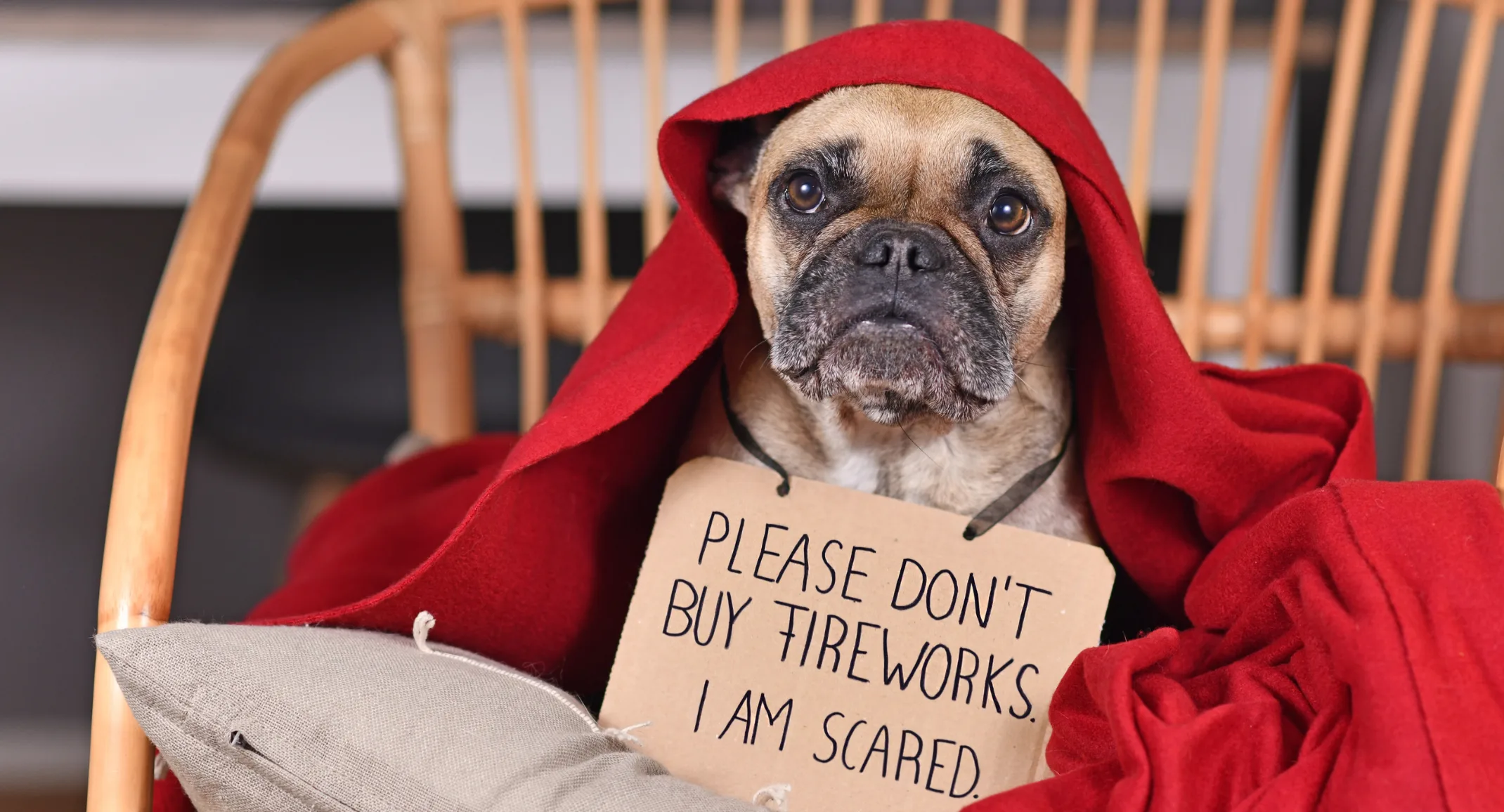Firework Safety for Pets: How to Keep Your Furry Friends Safe During Celebrations
Pet Safety

Fireworks are a staple of many holidays and celebrations, lighting up the sky with color and excitement. But while humans may enjoy the show, fireworks can be terrifying, and even dangerous, for pets. At Charleston Veterinary Referral Center (CVRC), we see a spike in emergency visits every year during firework-heavy holidays. Understanding the risks and preparing accordingly can help keep your pets safe, calm, and healthy.
Why Fireworks Are Dangerous for Pets
Even if your pet seems fine around loud noises, fireworks pose several risks:
Noise Sensitivity: Sudden, loud bangs can cause intense anxiety or panic, especially in dogs and cats.
Risk of Escape: Frightened animals may bolt from their home or yard, often getting lost or injured.
Physical Hazards: Pets can be burned by fireworks or ingest harmful debris left behind.
Medical Risks: For pets with certain health conditions, the stress can trigger serious complications.
Signs Your Pet May Need Emergency Care
If your pet is showing any of the following symptoms during or after fireworks, seek emergency veterinary help immediately:
Excessive drooling or vomiting
Disorientation or unsteady walking
Difficulty breathing
Burns or visible firework-related injuries
CVRC is open 24/7/365, including all holidays, and we’re always ready to help in an emergency.
What to Do If Your Pet Goes Missing
If your pet manages to escape during a fireworks event:
Search your neighborhood immediately.
Contact local animal shelters and vet clinics.
Post on lost pet groups and neighborhood apps.
Alert your pet’s microchip company.
Act quickly! Many pets are reunited within the first 24 hours when the community is alerted early.
Quick Tips for Firework Safety
Here are simple but effective ways to keep your pet safe and calm:
Create a Safe Space: Set up a cozy, quiet area with your pet’s favorite toys and blankets.
Keep Pets Indoors: Bring them inside well before dusk. Walk dogs early in the evening.
Use Calming Aids: Consider anxiety wraps, pheromone diffusers, or consult your vet for medication options.
Provide Background Noise: Soft music or TV can help muffle the sound of fireworks.
Update ID Tags and Microchips: Ensure your contact info is current in case your pet does escape.
Stay Calm: Your behavior influences your pet’s. Speak softly and avoid showing stress.
Avoid Fireworks at Home: Even sparklers can be dangerous to curious pets.
In Case of Emergency
If your pet is injured or showing signs of severe stress, don’t wait. Contact CVRC right away. We’re available around the clock, including holidays, to handle firework-related emergencies.
Stay safe, and help your pets enjoy a stress-free celebration!
CVRC Emergency Services Open 24/7/365 | www.charlestonvrc.com | (843) 614-8387 Your pet’s health and safety are always our priority.
